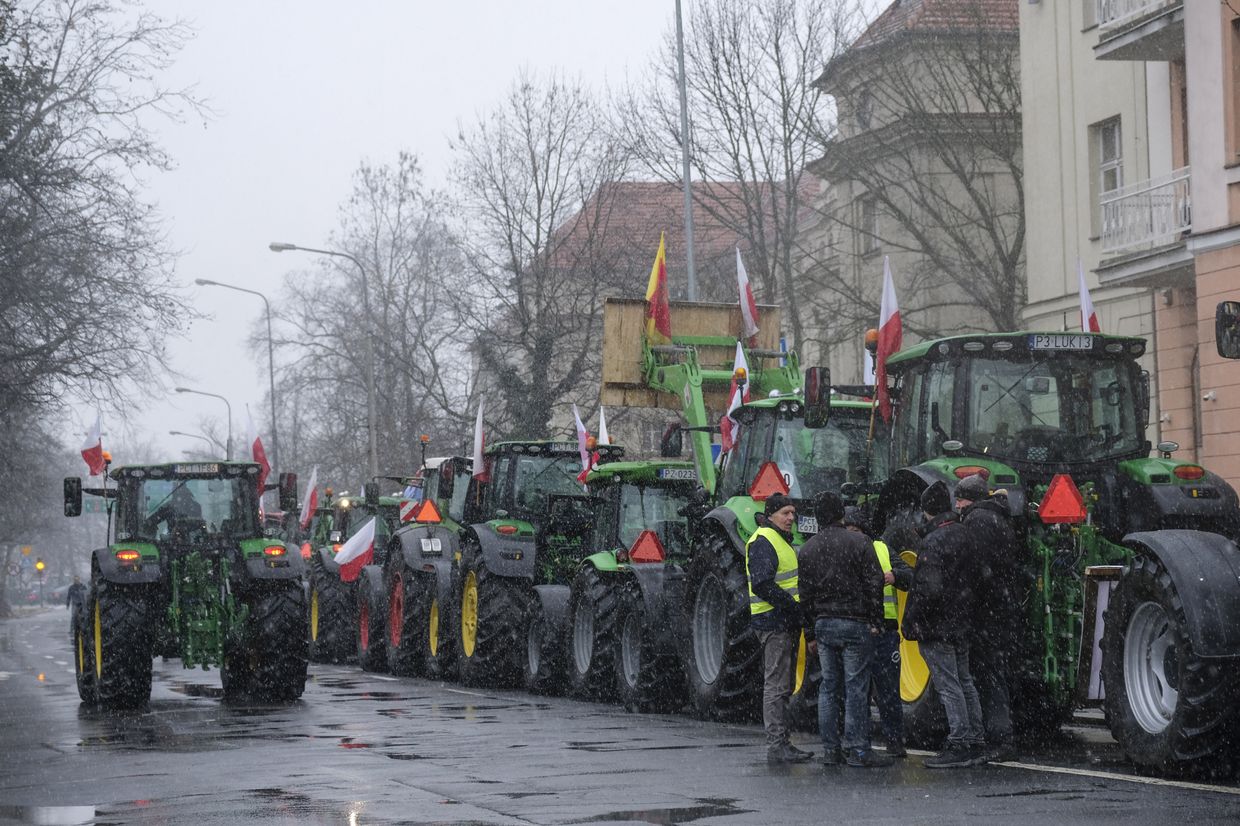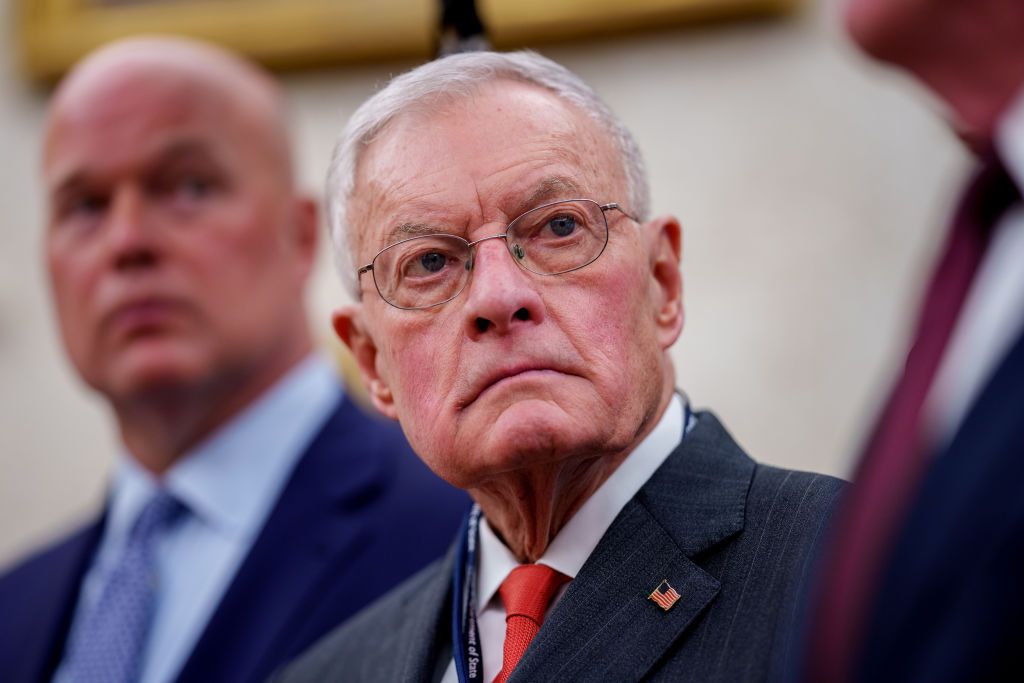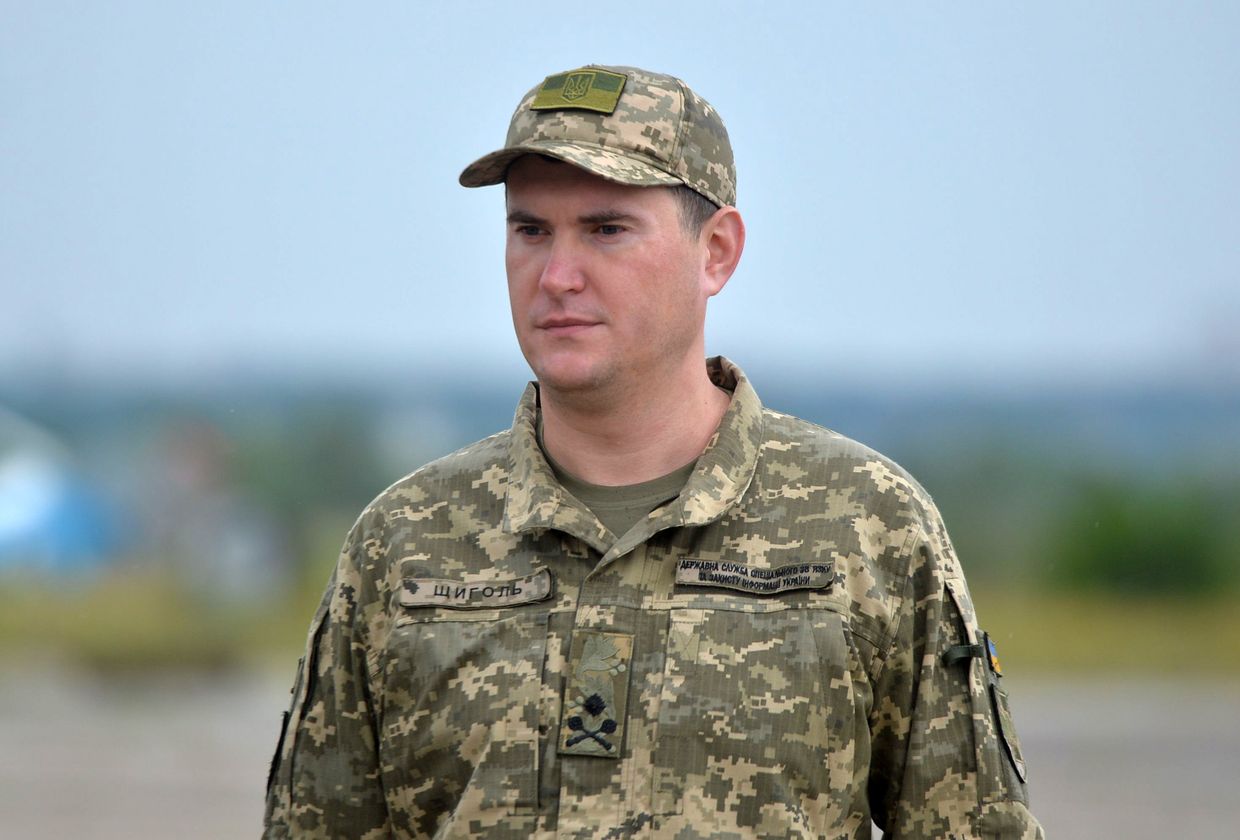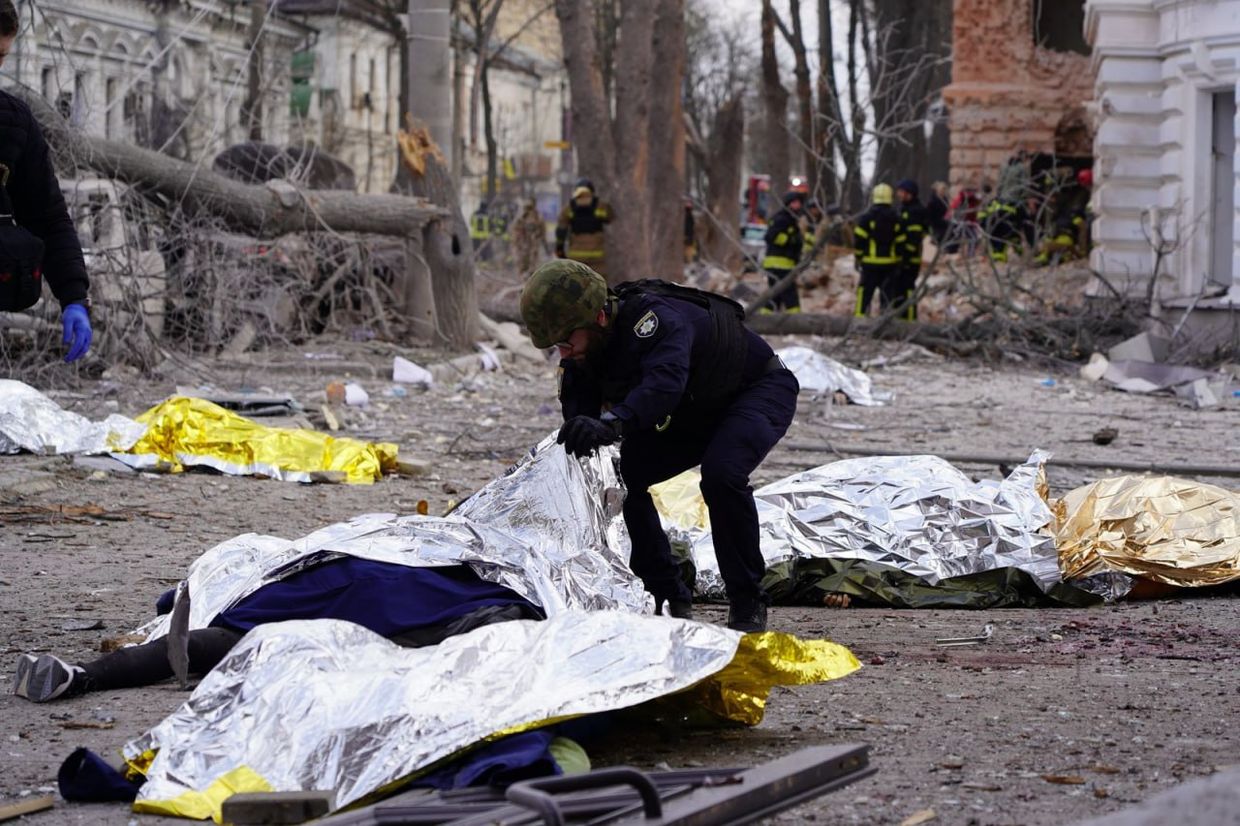The protests of Polish farmers hamper traffic through three crossings total on the border with Ukraine, State Border Guard Service of Ukraine spokesperson Andrii Demchenko told Ukrainska Pravda on Feb. 9.
The protests began at the Hrebenne-Rava-Ruska and Dorohusk-Yahodyn crossings, in addition to the Medyka-Shehyni, where the blockade was launched earlier in the day.
The farmers' Solidarity trade union announced the protests last week, citing an alleged lack of action by Warsaw and Brussels to address the influx of Ukrainian goods. Earlier, Polish carriers and farmers blocked four crossings between November 2023 and January to protest Ukrainian imports and liberalization of permits for Ukrainian truckers.
Traffic is blocked by about 100 people and about 50 vehicles at the Medyka-Shehyni crossing. The protesters are determined to let one truck, one bus, and one car through per hour, the report said. However, they are allowing bus and car drivers to bypass the protest site via a different road.
About 200 people and 35 vehicles blocked traffic near the Hrebenne checkpoint. Protesters plan to let two trucks per hour in both directions and will not restrict the movement of cars and buses.
At the Dorohusk crossing, protesters intend to allow one truck every hour in both directions.
Farmers also plan to block the reloading of Ukrainian agricultural products from rail to road transport and their transfer to terminals at the Chrubieszow-Volodymyr-Volynskyi crossing starting Feb. 9, the Ukrainian State Customs Service reported, citing information from the Polish side.
A partial blockade is also expected to start on Feb. 12 at the Zosin-Ustyluh crossing, and the passage of trucks is to be slowed down at the Uhryniv-Dolhobychuv the same day, the Ukrainian State Customs Service said earlier.
The formers also launched protests across Poland, blocking roads nationwide.
The protests center around imports of agricultural goods from Ukraine, which Polish agricultural groups claim present unfair competition to their own businesses. Warsaw has banned the import of grain and several other products from Ukraine in 2023, but other items, such as sugar or poultry, continue to raise worries among Polish farmers.
Polish farmers agreed to suspend their initial blockade on Jan. 6 after Agricultural Minister Czeslaw Siekierski agreed to meet some of their demands, including corn subsidies, increasing liquidity loans, and keeping agricultural tax at the 2023 level.
A new wave of protests erupted on Jan. 24, blocking roads across Poland again in connection to imports from Ukraine and other non-EU countries.
The Solidarity trade union announced at the beginning of February that they would block roads and border crossings with Ukraine between Feb. 9 and March 10 because of the supposed "passivity of the Polish authorities" and of the EU in solving the import issue.












